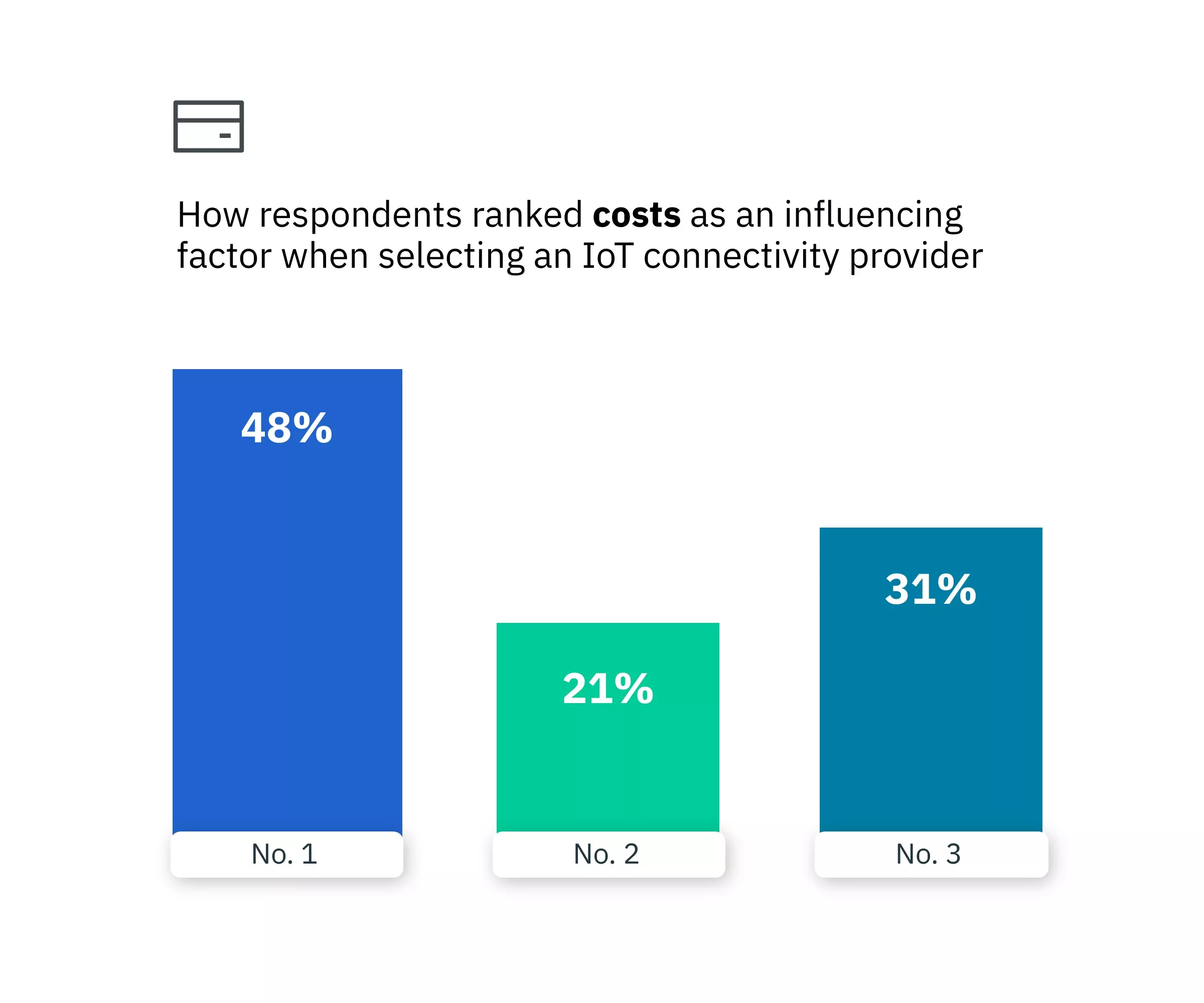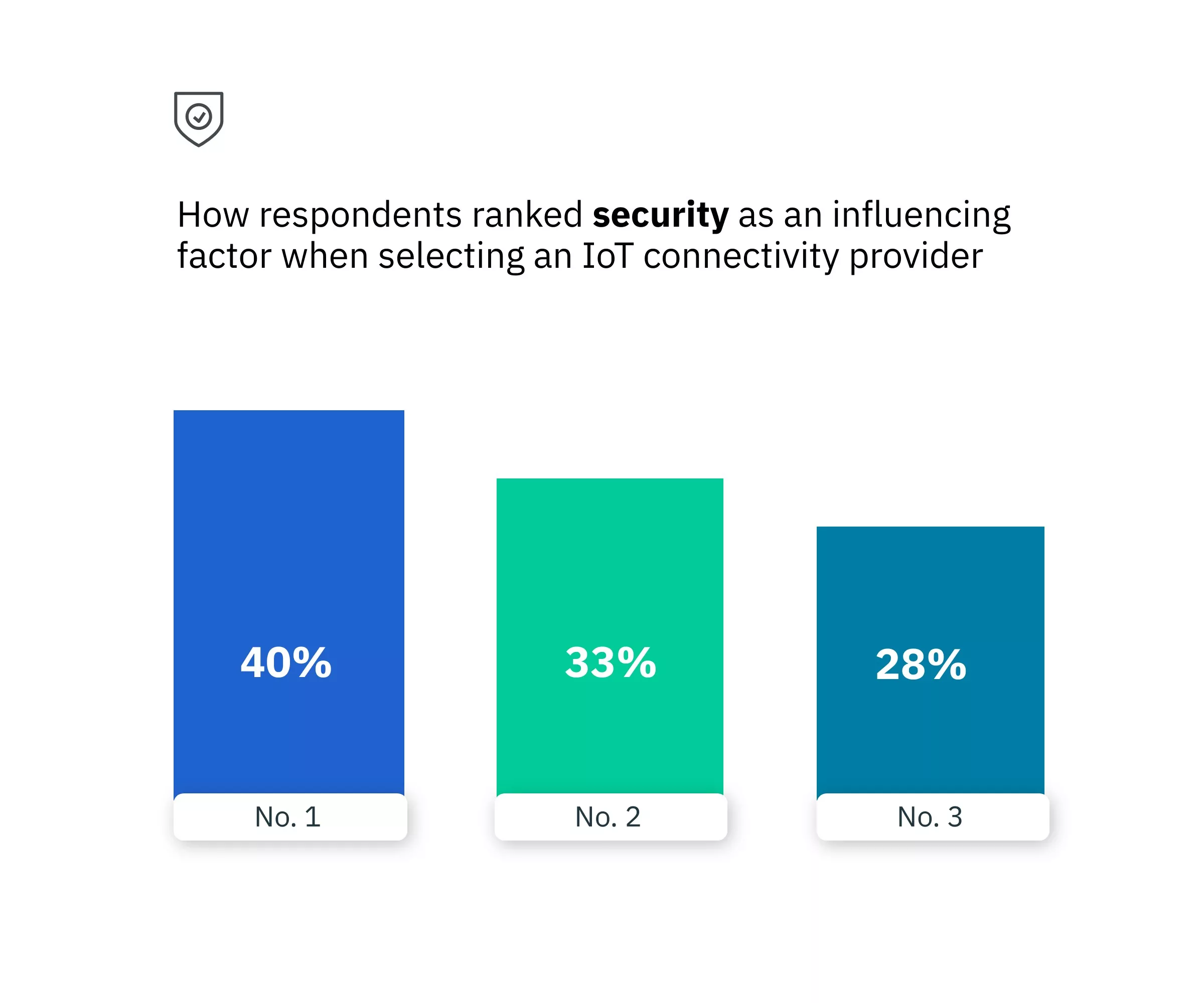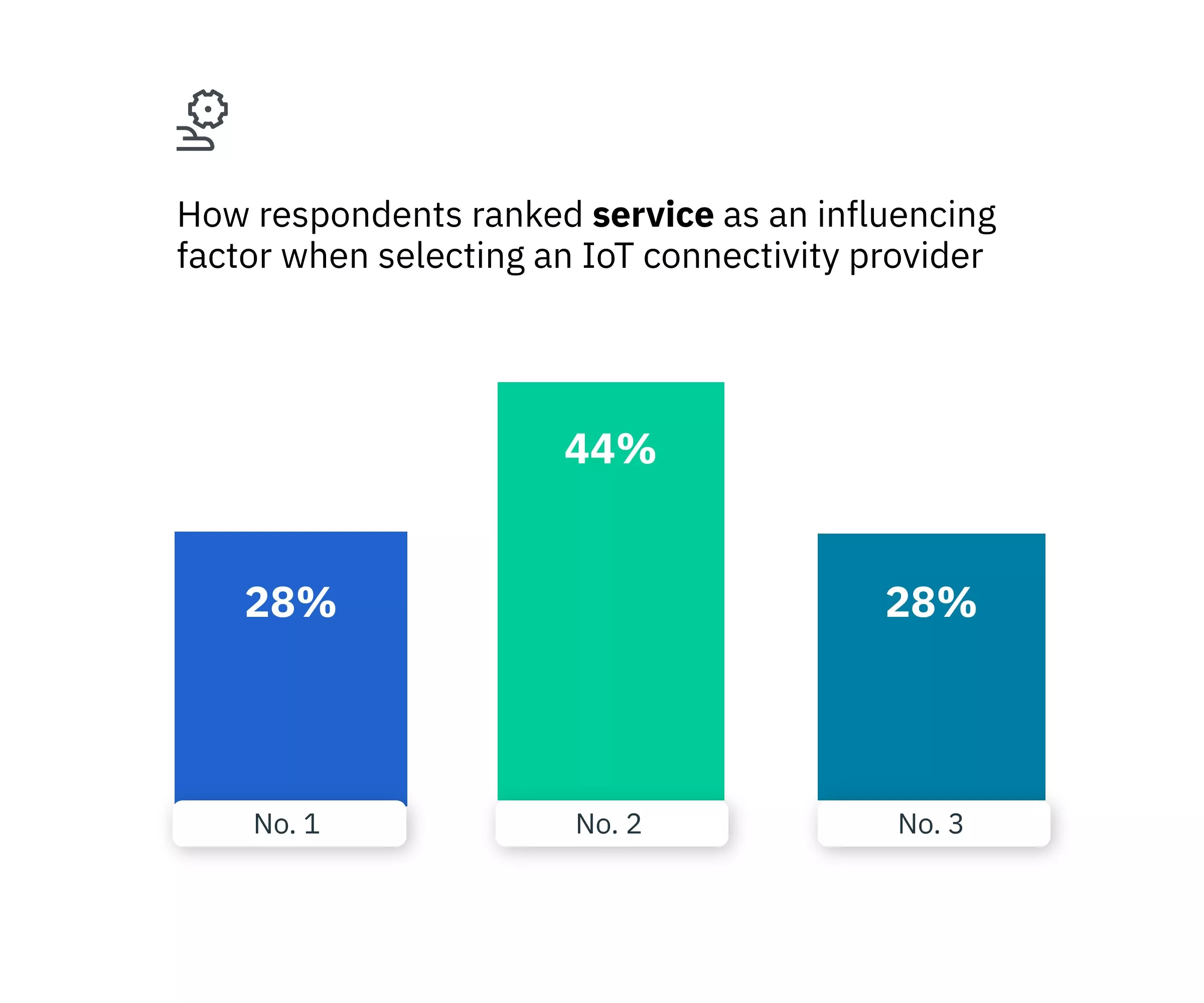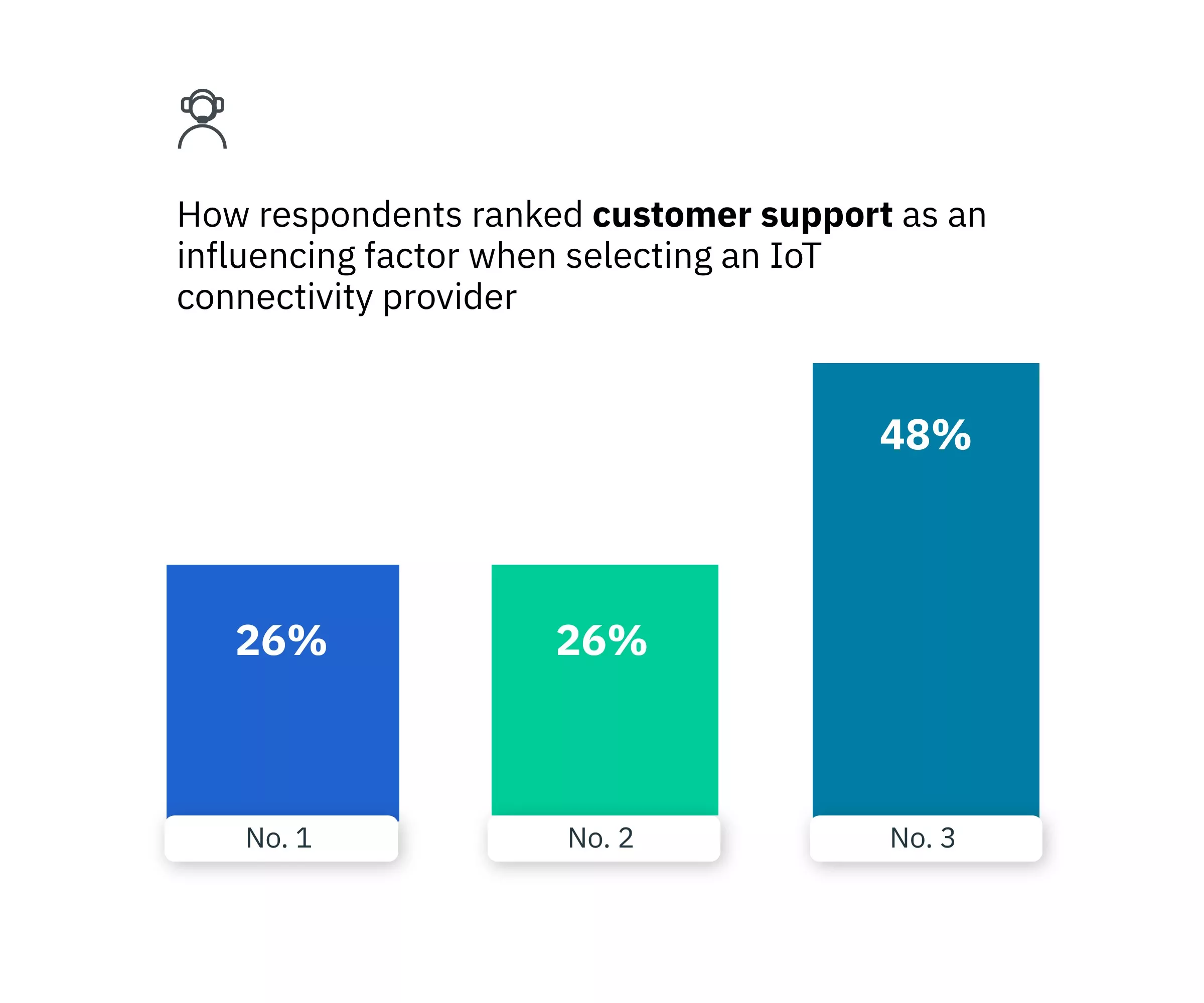-
Survey results show that while every respondent uses an IoT solution in their business, they are not perfectly happy with its capabilities. In fact, when respondents were asked about their current IoT provider, 57% of respondents said they were only somewhat satisfied with the solution they’re currently using.
-
To some extent, this is understandable considering the unprecedented rise in demand for EV charging solutions in recent years. The IoT needs of EV charging providers are complex and, as our survey has found, not every solution can fulfil every requirement to an adequate degree.
-
But it’s clear that these issues are challenges that we need to solve as a global connectivity provider. Solving these issues is essential to ensure the reliability, security and scalability of the EV charging market. By tackling these challenges, companies can maximize the benefits of IoT technology and contribute to the growth of the EV charging industry.
-
Let’s explore the most important elements of IoT for EV charging providers, according to our survey results.
Chapter 3
The IoT needs of charging providers
What are the most important factors when selecting an IoT connectivity provider?


Key selection factors
We asked our respondents to identify the three most important factors when selecting an IoT connectivity provider and rank them in order of importance. The factors were:
-
Cost
-
Service reliability
-
Security
-
Customer support
-
Technological innovation
-
Provider’s industry reputation
-
Ease of integration
-
Other (please specify)
-
Cost-effectiveness and scalability
-
Enhanced security features
-
Reliable connectivity
-
Customer support

-
Unsurprisingly, costs were one of the most important factors when it came to the selection of IoT solution providers. Operators and manufacturers of charging points are acutely aware of the high costs involved in building charging infrastructure, especially considering the sharp rise in demand in recent years. As these businesses scale, they have to be mindful of both upfront and operating costs to maintain profitability.
-
When investing in new IoT solutions, companies must ensure that this is a financially viable decision. At the same time, they can’t keep costs low at the expense of quality and reliability; each factor has to be balanced in the right way.

-
Security concerns and IoT are often intertwined. Devices that are permanently connected to the internet carry a higher risk of malicious attacks and data breaches and are often the target of bad actors trying to gain unauthorized access to the owners’ information.
-
Electric vehicles and charging points are no different. They all form part of a global infrastructure and can, therefore, fall victim to cyber attacks. Therefore, charging point operators, manufacturers, and software providers in the sector need to ensure they’re investing in IoT solutions that prioritize security, whether it’s by giving devices a digital security certificate or using encryption to keep data safe.

-
Without connectivity, charging points are practically unable to function. Charging points need to be connected at all times in order to communicate maintenance needs, accept and process payments, collect charging and energy consumption data, and indicate their availability on a variety of maps.
-
For this reason, IoT providers used by charging station manufacturers and operators have to ensure 24/7 connectivity around the world, even in rural areas. Otherwise, they risk compromising service quality and therefore, letting their customers down.

-
Due to the interconnectedness of EV charging infrastructure, many issues can arise and halt the normal operations of charging points. As a result, infrastructure stakeholders need IoT partners that can provide 24/7 customer support around the world.
-
This ensures that issues can be addressed and escalated to the provider as quickly as possible, resolving problems, minimizing downtime, and guaranteeing customer satisfaction.



